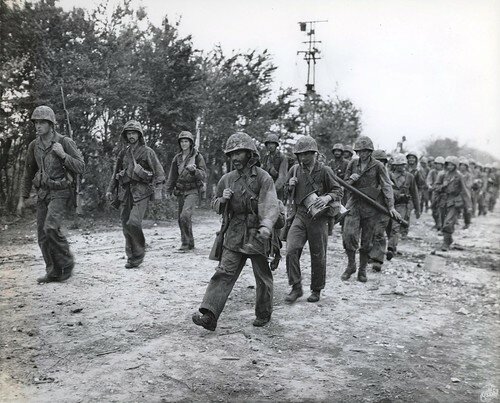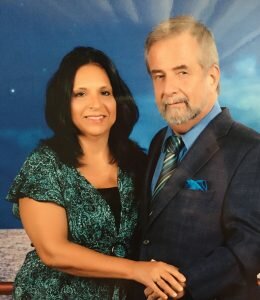Memorial Day in the sleepy little Massachusetts town where I grew up was a big deal (not so much here in Florida or elsewhere in the south, since its origin was a commemoration of Union dead). Next to Christmas it was also my favorite holiday, despite the somber ceremonies. It marked the beginning of summer – cook-outs, the filling of swimming pools, flowers in full bloom, and fresh clean air. Not long before school’s out!
The parade would assemble in front of the historical society building (the old town hall) and march up Main Street to the Town Green where militia trained in the old days. Speeches would be given, and selected sixth graders would recite from memory the Gettysburg Address and the poem In Flanders Fields:
In Flanders fields the poppies blow
between the crosses, row on row…
Followed by America’s Answer:
Rest ye in peace, ye Flanders dead.
The fight that ye so bravely led
we’ve taken up, and we will keep
true faith with those who lie asleep…
My earliest Memorial Day memory was as one of the small children who would follow the parade with flowers. (Mine were always lilacs picked from the tree beside our farm house.) As the parade would stop in the cemetery for the playing of Taps, we were to scatter and find a grave with a flag and place our flowers there. I was always last to return to the group, for my father had given me specific instructions. I had to find the grave of an ancestor, and I was given a list of names: Churchill, Bradford, Choate, Loring…. Geez, I was barely old enough to read!
Of course for me the most memorable of Memorial Days was when I was picked to recite the Gettysburg Address. Our teacher had handed out copies of the address and told us to read it and memorize it. There would be a contest to see who could recite it the best. I simply tucked it away and worked on something else.
“What do you think you’re doing?” Mr. Keating asked.
“I already know this speech. It was in one of my Best in Children’s Literature books my Grandpa gave me.”
“Right… Let’s hear it, then.”
I only stumbled over “It is for us the living, rather…” part, but it was clear there wouldn’t be much of a contest that year. I think my classmates were grateful for the class history nerd.
One year as a teenager (and thanks to my father’s pull in town) I had the honor of driving this beautiful drop-top cherry red Cadillac with our only Gold Star mother (she had lost a son in WWII) and the oldest man in town riding in the back. These two knew each other well, and ribbed each other so much I had trouble driving from laughter. I proudly drove past my girlfriend and future wife, who was waiting on the cemetery wall along Main Street to get a picture of me.
Years later I would march with the town officials as a planning board member (a truly exciting post in a town that didn’t have much to plan). My father, who could have marched with us as a selectman, would often go out to march in front of his beloved bagpipers he would hire every year for the parade. ‘Where’s your dad?” they would say. “Listen and take a guess.” I would reply.
So what does it mean to “keep true faith with those who lie asleep?” Something my father said near the end of his days, and what I found out about his Marine Corps service after he died have seared such a meaning deep into my soul. He knew I was a history buff, and he asked if I could look for a newsreel he saw before a movie while on leave during the war. It was of himself, in action commanding a tank in the battle for Saipan. He said when he realized he had been filmed it made him nauseated. Years after he died, more footage of the war became available. I found the film, and I know why it sickened him. He can be seen in his tank about 22.02 in this episode of World War II in HD called Day of Days.
The preceding generation had failed my father in many ways. He had to grow up in the Great Depression, and because of appeasement, isolationism and unpreparedness they had to send this 19 year old boy into a war that never should have been allowed to get as deadly and destructive as it did. By 1944 the Japanese had changed tactics. No longer would they send wave after human wave in brave but futile Banzai attacks. Instead, they would stay in their bunkers and caves to the end, fighting from there and sneaking out to kill hapless Marines when they could. So the Marine Corps put my father in an outdated Stuart tank, which had the main gun removed and replaced with a Ronson flame thrower. This instrument of death was appropriately nicknamed the “Satan.” My father’s job was to burn human beings alive, while hoping that his machine gunner would mercifully end the lives of as many as would show themselves. There was no choice. It had to be done.
Imagine the scars that leaves on the inside of a kid asked to do that. So let us “keep true faith with those who lie asleep” by learning the ultimate irony of human history: Those who are known to have properly prepared for war are the least likely to have to fight one. The Japanese attacked us at Pearl Harbor through grave miscalculation: They knew were were unprepared, and they thought that we wouldn’t have the stomach for a protracted, existential fight. So my father, and the rest of “the greatest generation,” were asked to go forth and prove them and the Nazis wrong. God help us make sure there is no such misunderstanding in the future.
****
Photo by frankieleon 



Comments
Leave a Reply